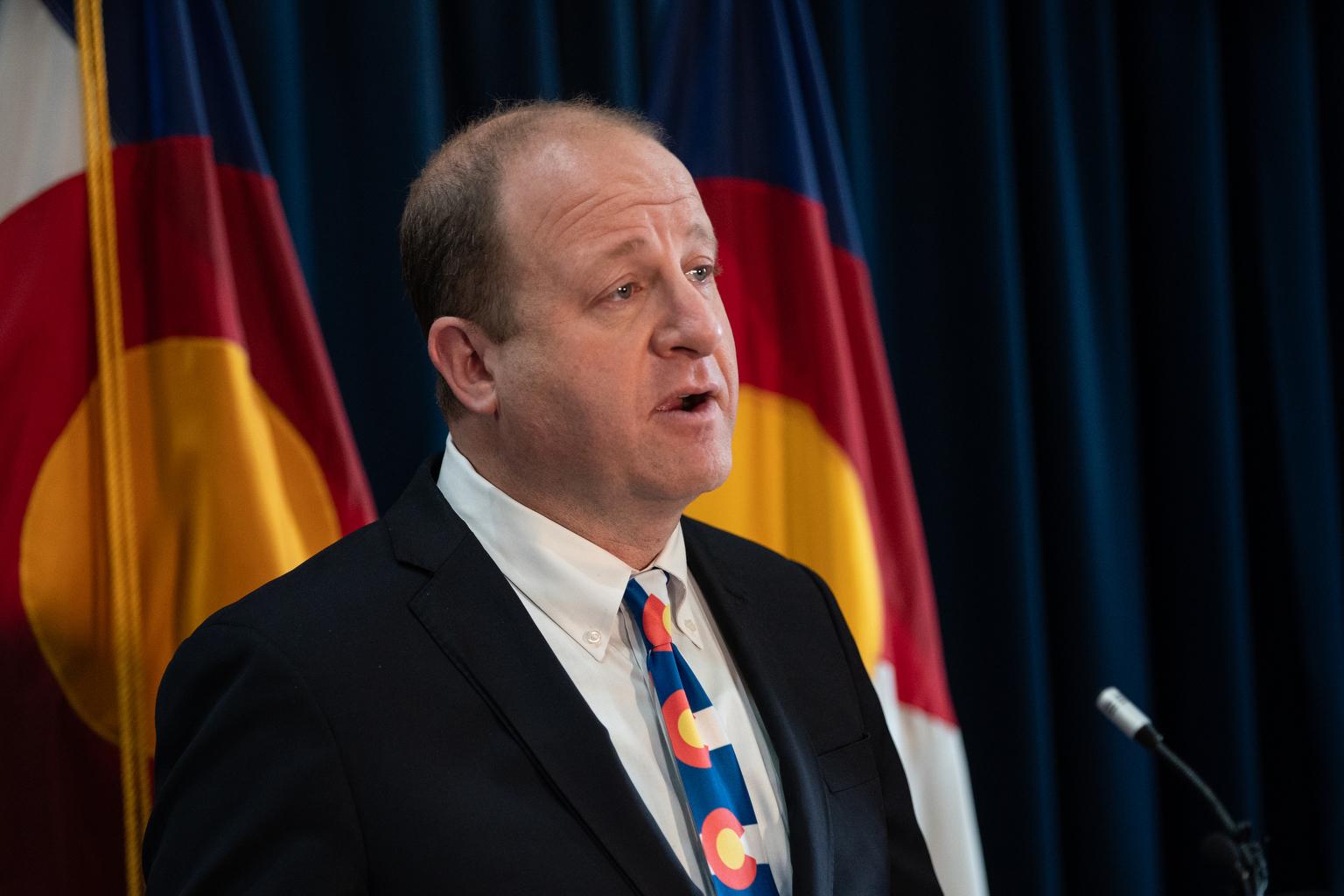
El Paso County Sheriff Joseph Roybal and Teller County Sheriff Jason Mikesell announced Monday a renewed partnership with Immigration and Customs Enforcement (ICE), pledging to enhance public safety by formally cooperating with federal immigration authorities.
The move, revealed during a news conference at the El Paso County sheriff's office in Colorado Springs, gives new energy to a collaboration litigated and scaled back under state laws limiting local law enforcement’s engagement with ICE.
“I'm tired of politicians telling me and my deputies how to keep people in our community safe,” Roybal said. “To address these violent criminals we must have our hands unshackled by these Colorado laws.”
The renewed agreement includes updated procedures for identifying and transferring individuals suspected of being in the country illegally, according to an internal memorandum sent by Roybal to his staff on Jan. 30 and shared at the press conference.
While the El Paso County Sheriff’s Office will not ask people directly about their immigration status, staff will be required to report individuals to ICE if they are not U.S. citizens or if there is reason to suspect they are in the country illegally.
"As with anyone entering our facility," the internal memo stated, "all individuals will be asked to prove their country of birth/origin."
"If the individual was not born in the United States or if there is reasonable suspicion they may be in the country illegally, the designated staff member must contact our local ICE liaison immediately," so that the federal agency can begin its own investigation, the memo said.
If ICE places a detainer request on an inmate, the sheriff’s office will notify the agency when the individual is scheduled for release, giving federal authorities time to act.
Under the policy, the sheriff’s office will hold individuals for no longer than six hours after their scheduled release to allow ICE to take custody, a timeframe that officials say complies with state laws. If ICE agents arrive before the individual is released, sheriff’s deputies will facilitate the transfer within the secure confines of the jail.
Legal challenges and policy implications
This announcement comes after a 2024 Colorado Court of Appeals ruling found that agreements between county sheriffs and ICE to detain individuals beyond their scheduled release violate state law. The court determined that local law enforcement officers cannot hold individuals on ICE detainers once they are eligible for release under Colorado law.
Teller County Sheriff Jason Mikesell has been at the center of the legal battle since 2019 when his office entered an agreement with ICE to arrest and detain individuals flagged for immigration violations. The practice led to multiple lawsuits, with advocacy groups arguing that it results in unlawful detention.

Despite the legal challenges, Roybal and Mikesell insisted the latest policy aligns with existing legal boundaries while allowing them to work with ICE to address public safety concerns.
“We have no desire to deal with families, do roundups, single moms, grandparents, or any other undocumented illegal aliens,” Mikesell said Monday. “If they're not committing crimes in our communities, we don't want them (in our custody). We only want to deal with people that commit crimes in Colorado.”
Local and political reactions
Republican Congressman Jeff Crank joined the news conference Monday and backed the sheriffs’ renewed collaboration, emphasizing the need for intergovernmental cooperation.
“Don’t tell me you have compassion as a politician when you're defending a system that allows that to happen,” Crank said. “It is the expectation of the citizens of this state that we protect and defend them through law enforcement.”

The policy shift could potentially draw further legal scrutiny.
The American Civil Liberties Union (ACLU) of Colorado said the agency is committed to protecting the rights of immigrant communities and families in the state.
“We reiterate that Colorado law restricts state and local law enforcement’s involvement in the enforcement of federal civil immigration law. Collaborating with Immigration and Customs Enforcement risks betraying community trust and can deprive residents of their rights guaranteed under the Colorado Constitution and state law,” a statement from the organization said Monday.
“We urge law enforcement to consider their duty to serve all members of the public, and not engage in civil immigration enforcement measures that can threaten to tear families apart and destabilize communities.”
The ACLU has previously sued El Paso and Teller counties over its cooperation with ICE, arguing such policies violate Colorado law. Roybal said he has consulted with attorneys to ensure compliance with existing state laws while moving forward with the partnership.
“Threaten me all you want,” Roybal said. “I have worked with ICE, and I have worked with my attorneys to make sure we are following the current Colorado law.”
As the proposal moves forward, Roybal and Mikesell have urged local residents to support Senate Bill 25-047, which has a scheduled hearing in the Senate State, Veterans, and Military Affairs Committee on Feb. 25. The bill seeks to lift the state’s current restrictions on ICE cooperation and allow local agencies to enter formal agreements with federal immigration authorities.
Roybal and Mikesell worked together last legislative session to pass the now-failed HB24-1128. Local law enforcement could have collaborated with ICE more easily had it passed.
CPR News has also reached out to The Accompaniment and Sanctuary Coalition of Colorado Springs for comment.
This is a developing story and will be updated.
- New Trump federal immigration directives could conflict with Colorado laws requiring law enforcement to keep it local
- Colorado appeals court bars sheriffs from detaining inmates for federal immigration authorities after they’re eligible for release
- ACLU Sues Teller County Sheriff For Plan To Deputize Officers for ICE









